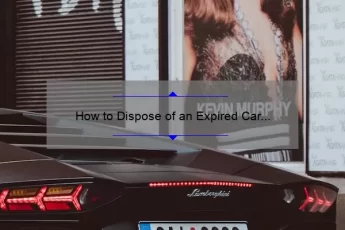A new car can be an expensive investment. If you’re young and want a rugged pickup or a new sports car, it’s easy to go overboard. Dave Ramsey urges you to think carefully about your car budget before making a purchase. Watch his YouTube video “How Much Car Can I Afford?” and learn more about how to find the right balance between luxury and affordability.
Avoiding car payments
The average monthly payment on a new car in the U.S. is over $500, and it’s even more costly in Canada. Not to mention that new car loans last an average of 68 months. These payments can be a significant financial anchor. You can make small sacrifices to avoid these monthly expenses. For instance, you could give up your daily coffee or buy second-hand underwear to save money. However, small sacrifices are nothing compared to the financial freedom you will enjoy when you are done with car payments.
As a rule, avoid making car payments unless you have to. Car payments significantly drain your budget and can take up 20-30% of your income. This is why Ramsey recommends buying a cheap used car or keeping the car you already have.
Taking Ramsey’s advice, you can avoid making car payments entirely. While car payments are a big part of American culture, the average car payment is more than $500 per month, and over a lifetime, you can save up to $57,000 by not making car payments. You can build substantial wealth by investing that money in stocks and mutual funds. If you invest $598 per month in the stock market, you can expect to earn $2.1 million after 30 years.
As a rule of thumb, the monthly payment on your car should be at most 10% of your take-home pay. You should also avoid taking out extra-long car loans. Ramsey warns that the average car loan should be 60 months or no longer.
Buying a slightly used car
If you’re planning on buying a new car, consider purchasing a slightly used car. Dave Ramsey is a financial guru who believes that buying a slightly used car is better than buying a new one. Buying a slightly used car may require more effort, but it will save you money.
However, there are some things to remember when buying a slightly used car. For instance, car maintenance is costly – especially if it’s a 15-year-old model. It’s also good to pay cash for a slightly used car rather than getting a loan. In addition, you can negotiate a better price when you’re buying currency.
While buying a slightly used car may be a better deal than buying a new one, it’s still important to do homework and check the car’s condition. Otherwise, you could end up paying more than you should for a vehicle that’s not worth its price.
Another thing to remember when buying a slightly used car is that depreciation will be a factor in any vehicle. A car’s price decreases over time, and buying a used one will lower your monthly payments and help you avoid major repairs. If you’re buying a slightly used car, look at Edmunds’ True Cost to Own tool to get an idea of how much the car’s maintenance and repairs will cost.
Buying a new car
Whether you’re planning to buy a new vehicle or want to keep your current vehicle, it’s essential to know how much you can afford. A car payment can eat up 20 percent to 30 percent of your income, leaving you with a little leftover for other things. A good rule of thumb is to spend half of your gross salary on a car. This will help you avoid financial strain and missed opportunities down the road.
The difference between an inexpensive and expensive car can be upwards of $5,000 per year. This difference includes gas, insurance, depreciation, and financing costs. This difference will equal more than one million dollars by reaching retirement age. Even if you only drive one car a year, that money can add up quickly.
Several financial gurus have devised rules that help determine how much you can afford to spend on your vehicle. But these guidelines are only guides and are not foolproof. Your income level, savings and investment habits, and other factors will affect your car purchase decision.
Typically, most people will need help paying off a vehicle within four years. This is why auto financing guidelines only allow you to purchase a car if you plan to make payments for four years or more. Longer financing terms come with higher interest rates and require a more significant down payment. If you can save for a larger down payment, it may be the most brilliant financial move for you.
Buying a car is one of the most significant purchases you will make in your life. It represents freedom, but spending more than you can afford may hinder your mobility. It could also limit other financial goals.
Buying a new car with cash
Buying a new car with cash can be a great way to save money on the purchase. It also allows you to take advantage of deals that many dealerships offer on financing. In addition to low-interest rates, many dealers will provide additional incentives to attract customers. By paying with cash, you can compare the amount of money you save over time on interest versus the price you pay for the car.
Cash buyers should also understand a new car’s various trim levels. These are different levels of a model and contain additional add-ons. Base trim levels are the most inexpensive, so they may be the best option if you pay cash for your new vehicle. However, base levels may not have leather interiors or powerful engines, so you must know precisely what you want before making your final decision.
Another benefit of paying cash for a new car is that it forces you to stay within your budget. Without monthly loan payments, spending more than you can afford is easy. Plus, paying cash for your new car frees up your income for other purposes. That’s a great way to save money.
One advantage of buying a new car with cash is unlimited purchasing power. Because you’re paying money, the seller may already have the keys to the car, so you’ll have complete control of the negotiation process. You’ll also be able to avoid the stress of haggling over interest rates and financing terms.
Buying a new car with financing
There are several factors to consider when buying a new car with financing. First, you must set a budget. You should calculate your monthly payment and total interest costs. You should also factor in other expenses, such as registration, title, and taxes. Once you have determined your budget, it is time to make arrangements for financing. You may arrange a loan directly from the dealership or get pre-approval from a bank. Consider the cost of gas, insurance, repair, and maintenance. In addition, you should negotiate the price of the car with the dealer and ensure that the options you want are included in the price.
You should also make sure that you understand the contract thoroughly. Always check whether the sales contract and credit application information are correct. Moreover, you should ensure that everything you verbally discuss is clearly explained in the contract. Only sign the contract if you are delighted. You also have the right to reject the deal, so do not be afraid to say “no.” Also, remember that you do not have a cooling-off period.
You must consider the auto financing you’ll incur when shopping for a new car. When calculating the car’s total price, many must remember to contemplate auto financing. Buying a new vehicle without considering auto financing can be a costly mistake. In many cases, the dealer will negotiate a lower sticker price, but you should still pay more in the long run. And if you’re borrowing for longer, that interest will continue to add up.
Having pre-approved car financing is a brilliant idea. It will ensure that you have a smooth purchase. A pre-approved loan will reduce the hard inquiries made on your credit history.








